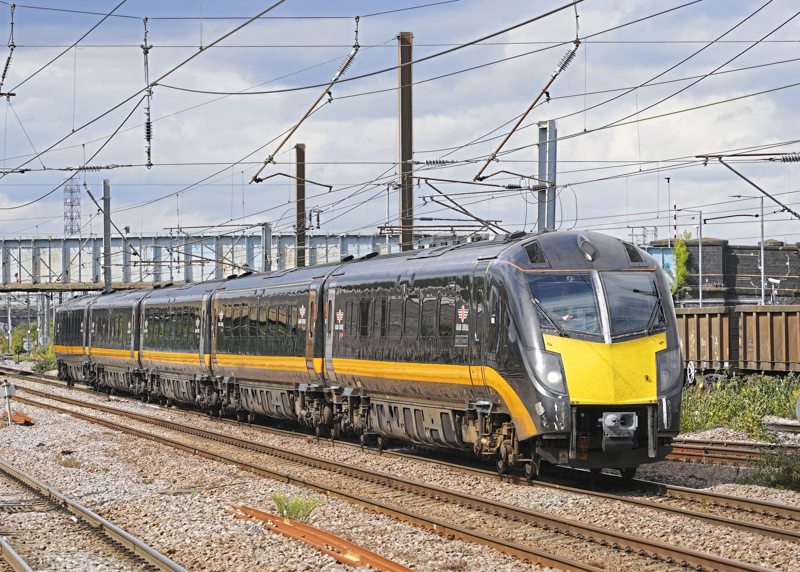Grand Central now calls at Peterborough

The Office of Rail and Road has given the go-ahead for some of Grand Central’s trains to call at Peterborough - six years after its most recent proposal was rejected. Arriva-owned GC has been operating on the East Coast Main Line since December 2007, but has been unable to gain a licence to call at Peterborough.
GC is the first open access operator to be allowed to call at the station, which is a key interchange on the East Coast Main Line with routes from Stansted/Norwich to the West Midlands and North West.
The approval will enable two existing daily GC services in each direction - one each from Sunderland and Bradford Interchange to London King’s Cross - to call at Peterborough from “early in the New Year”. Sunday trains will continue to run non-stop through Peterborough.
Never miss an update again – subscribe to our weekly newsletter[1] today and receive the latest news, opinions and more from the UK rail industry, in a convenient format.
The calls fall short of GC’s pre-COVID proposal (rejected by the ORR in December 2017), whereby it also applied for a very early morning service from Wakefield and Doncaster to King’s Cross (arriving before 0730) and a late evening service to Doncaster and Wakefield (leaving London at 2150). Both additional trains were proposed to call at Peterborough, along with two existing Sunderland trains.
Previously, GC’s last permitted southern-most stops were York (Sunderland trains) and Doncaster (Bradford trains). GC runs five daily trains from Sunderland and four from Bradford to London.
Rival LNER declined to comment on ORR’s November 24 decision. Run directly by the Department for Transport using its Operator of Last Resort, LNER (and its predecessor franchises) had previously objected to Peterborough station calls by any open access operators on the basis of revenue extraction.
The move follows a shift in tone from the Department for Transport where, in a change of stance to his predecessors, current Secretary of State Mark Harper has been positive about open access.
In his Bradshaw Address on February 7, Harper said the Government would “support more open access services where it benefits passengers and taxpayers”.
He went on to say: “We’ve seen this work well with Hull Trains and Grand Central as well as Lumo,” adding that “open access operators will play an important role in the industry’s future, especially as we grow new markets and make best use of spare network capacity”.
Previously, calls at Peterborough were said by the DfT not to be possible due also to capacity constraints. A total recast of all ECML services has been postponed several times but is now thought to be targeted for December 2024.
In a statement about the granting of GC stopping rights, ORR said it “supports new OA where it delivers competition for the benefit of passengers and can fit alongside existing services without unduly impacting performance on the network.
“In making this decision, we have weighed this up against the impact on Government funds and effect on other users of the railway.”
ORR Director, Strategy, Policy & Reform Stephanie Tobyn added: “OA services promote competition and give passengers more choice about how they travel. With passenger numbers still not quite recovered following the pandemic, it’s important that the network provides options for all as the industry looks to increase passenger journeys.
“ORR plays a crucial role in overseeing competition on our railway, and we’ll continue to assess OA applications with the goal of providing greater consumer choice, value and performance.”
GC Chief Operating Officer Sean English said: “As an open access operator, we’re always looking to innovate and bring new connections to areas that are under-served by the regular timetable.
“The decision to approve our application is recognition of the benefits that competition on the railway can deliver, both for customers and the taxpayer.”
References
- ^ subscribe to our weekly newsletter (www.greatmagazines.co.uk)